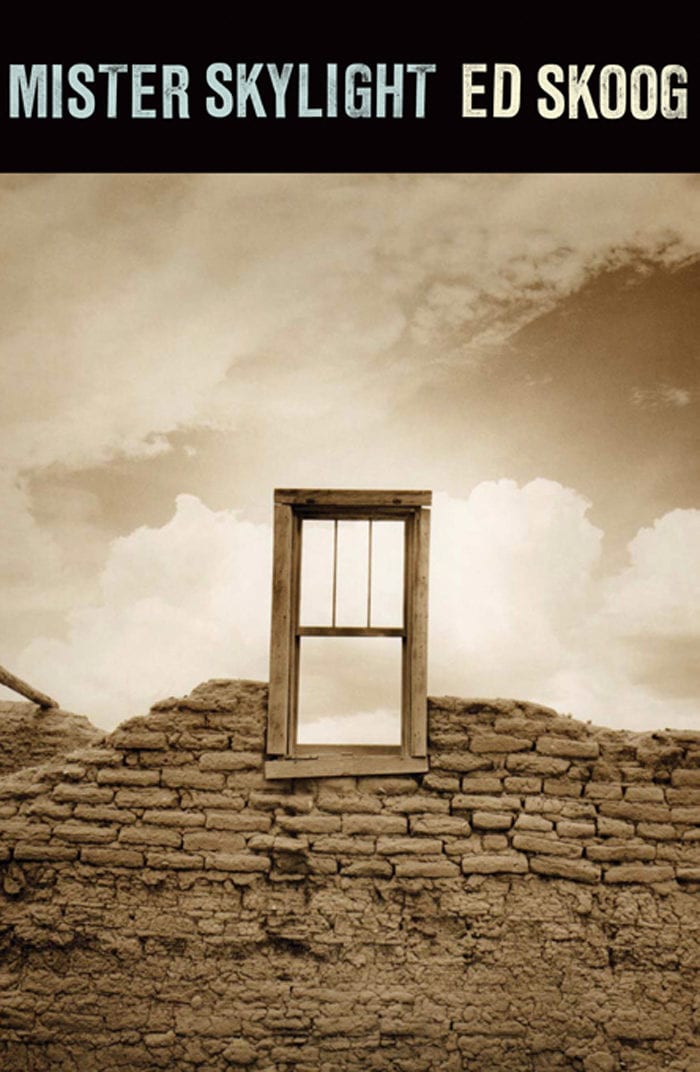
Ed Skoog, who worked for years in the basement of a museum in New Orleans, developed personal connections to the collection’s art objects and paintings. “Working on an exhibition about the building trades was important to this book,” he writes. “Listening to the oral histories of plasterers, steeplejacks, and carpenters connected me to my own family stories of work and building.” Marked by uncommonly intense and considered use of language, Skoog demonstrates a rich attention to form and allusive narrative as he attends to the details of contemporary politics, culture, place, and relationships.
The phrase “Mister Skylight” is an emergency signal to alert a ship’s crew, but not its passengers, of an emergency. This debut collection is alert to disasters and to the hope of rescue—from the flooding of New Orleans to the wildfires of California to the more private emergencies of domestic life. Interior dramas of the self play out in a clash of poetic traditions, exuberant imagery, and wild metaphor.
ISBN: 9781556592935
Format: Paperback
Reviews
“Ed Skoog’s poetry is so ambitious it takes my breath away… he creates dense narratives, sees patterns, sees dissimilitudes, knows how to fishtail with images and turn with ease, knows how to braid pop culture into small personal melancholies and into large generosities.” —The Stranger
“The truth of this collection is the same truth you’ll find in the nearest skylight. Go stand under the glow. Tell me of the sun, the weather, the clouds. Now tell me of the mites trapped in the screen, the bird shit, the exoskeletons of life. Skoog’s first full-length collection captures and presents the truth of the truth: our under-analyzed, overlooked, often fragile existences on earth.” —Dave Jarecki
“Fresh and imaginative in the moment, Skoog’s style arises from a twentieth-century movement that took flight with Wallace Stevens and culminated with New York School poets Frank O’Hara, John Ashbery, and David Shapiro. Skoog’s work displays the same enigmatic poetics and verbal montages, a similarly disjunctive syntax, and seemingly unrelated juxtaposition of image and phrase. And, as with Ashbery and Shapiro, readers must surrender their demands for whole meaning in the narrative sense to enjoy the verbal play—the sounds, phrases, and crazy connections that suggest new ways of reading the world.” —Harvard Review Online
“… one of the most assured, extraordinary debuts I’ve ever seen. Ed is just a great writer, and this is a great book.” —Ward Six
